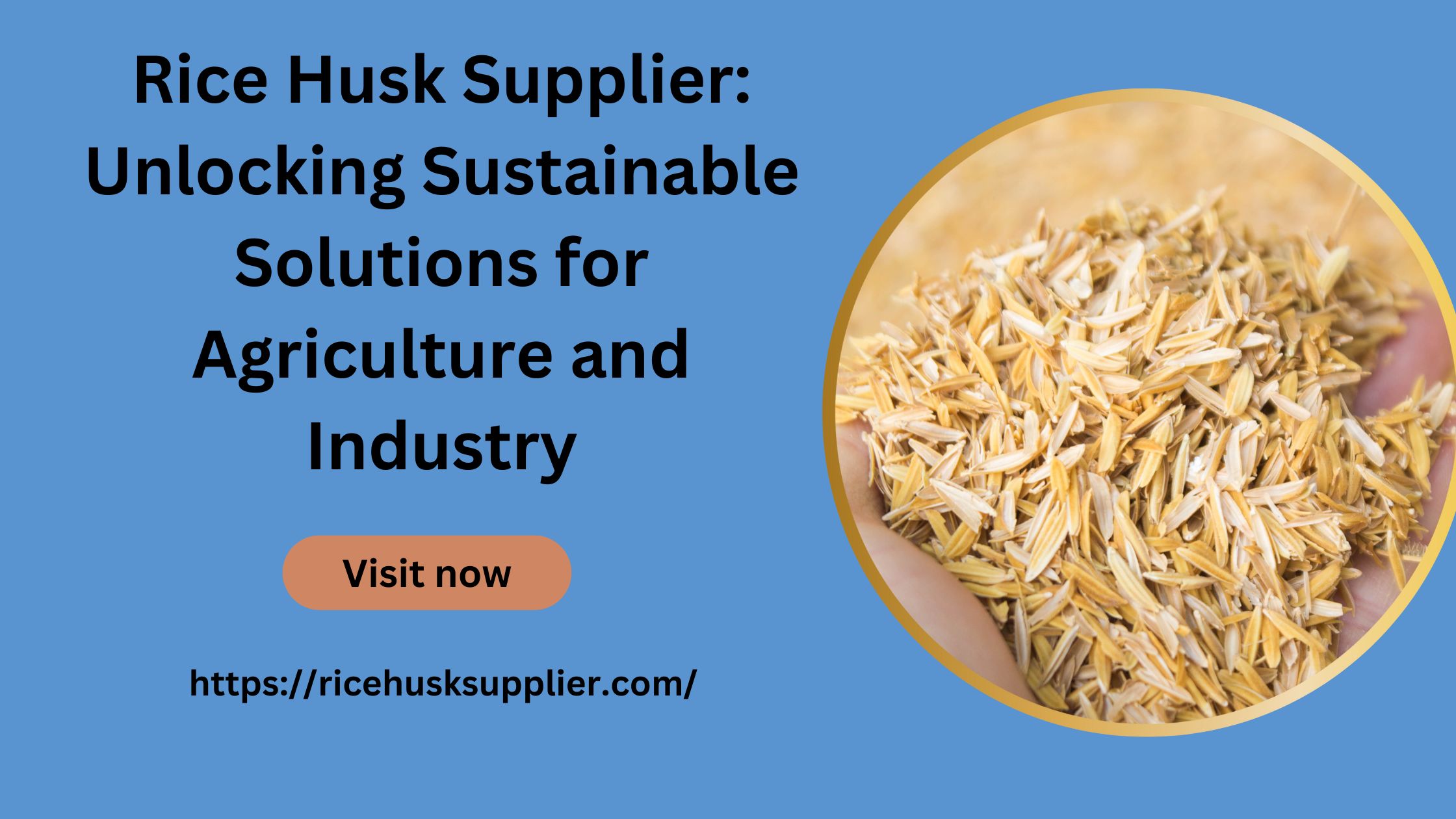In the quest for sustainability and eco-friendly materials, rice husk has emerged as a versatile, valuable resource. A byproduct of rice milling, rice husk often goes overlooked, yet it holds incredible potential across various industries. This article explores the role of a rice husk supplier, highlighting how this humble agricultural waste is transforming sectors from energy production to construction, and why choosing the right supplier matters for your business and the environment.
What Is Rice Husk?
Rice husk, also known as rice hull, is the hard protective covering of grains of rice. When rice is harvested and milled, the husk is separated from the grain. Traditionally considered agricultural waste, rice husk has gained significant attention due to its rich silica content and high calorific value.
Millions of tons of rice husk are generated worldwide annually, especially in rice-producing countries such as India, China, Vietnam, and Thailand. Managing this waste sustainably is a challenge, and rice husk suppliers have stepped up to convert it into a valuable commodity.
The Importance of Rice Husk Suppliers
Rice husk suppliers act as the crucial link between rice mills producing this byproduct and industries that can utilize it effectively. These suppliers ensure the proper collection, processing, and distribution of rice husk, maintaining quality and supply consistency.
Here’s why rice husk suppliers are essential:
- Reliable Source of Raw Material: Industries relying on rice husk need consistent, quality supplies. Suppliers facilitate this by sourcing husk directly from rice mills.
- Quality Control: A good supplier tests and processes rice husk to meet industry standards, ensuring usability.
- Customized Supply: Depending on industrial requirements, suppliers may offer raw rice husk, treated husk, or rice husk ash.
- Sustainability Support: By connecting rice mills to end users, suppliers reduce environmental pollution caused by burning or dumping husks.
Diverse Applications of Rice Husk
Rice husk’s unique properties make it useful in many fields:
Energy Production
Rice husk is an excellent biofuel with a calorific value close to coal. It can be burned directly or converted into biochar and pellets. Power plants and industries utilize rice husk to generate steam and electricity, promoting cleaner energy.
Agriculture and Horticulture
- Soil Amendment: Rice husk improves soil aeration, water retention, and nutrient availability.
- Mulching Material: It helps conserve moisture, control weeds, and regulate soil temperature.
- Growing Medium: Rice husk can be a component in potting mixes and hydroponic systems.
Construction Industry
Rice husk ash (RHA), derived by burning rice husk at controlled temperatures, is rich in silica and used as a supplementary cementitious material. It enhances concrete strength and durability, making construction more sustainable.
Animal Feed
Processed rice husk can be added as a fiber source in animal feed, promoting digestive health.
Other Industrial Uses
Rice husk is used in manufacturing insulation boards, activated carbon, silica gels, and even biodegradable packaging materials.
Why Choose the Right Rice Husk Supplier?
Not all rice husk suppliers are the same. Selecting the right supplier impacts the efficiency of your operations and environmental footprint.
Factors to Consider:
- Quality Assurance: Ensure the supplier conducts proper cleaning and drying to avoid contaminants.
- Consistent Supply: Reliable suppliers maintain steady stock even during off-seasons.
- Customized Processing: Suppliers offering milling, pelletizing, or ash processing add value.
- Sustainability Practices: Suppliers focused on eco-friendly handling and reducing carbon footprint contribute positively.
- Competitive Pricing: Transparent pricing with no hidden costs.
How Rice Husk Suppliers Promote Sustainability
By turning agricultural waste into valuable products, rice husk suppliers help reduce environmental pollution caused by husk burning a common practice leading to air pollution and health hazards.
Additionally, rice husk utilization in construction reduces cement use, lowering CO2 emissions. Energy generation from husk cuts reliance on fossil fuels, contributing to greener power sources.
The Future of Rice Husk Supply: Innovation and Growth
Emerging technologies such as pyrolysis and gasification are enabling more efficient rice husk utilization. Innovative rice husk suppliers invest in research and infrastructure to meet growing demand in renewable energy, sustainable building materials, and advanced agriculture.
The global push toward circular economy models means rice husk suppliers are poised for growth, linking farmers, industries, and eco-conscious consumers in a sustainable value chain.
Note:- Purchase affordable rice husk ash in India
Conclusion
Rice husk suppliers play a pivotal role in transforming a common agricultural byproduct into a sustainable resource that benefits industries and the environment alike. From energy production to agriculture and construction, rice husk’s potential is vast and growing. Choosing the right supplier ensures quality, reliability, and alignment with sustainability goals.
As the world focuses more on green solutions, rice husk suppliers stand at the forefront, unlocking opportunities that help build a cleaner, more resource-efficient future.
